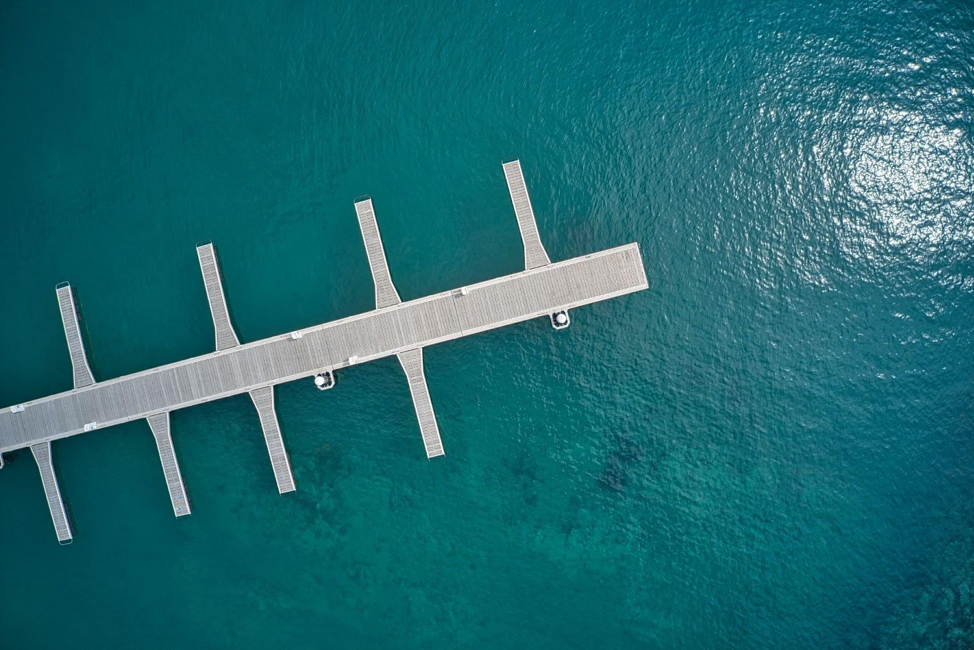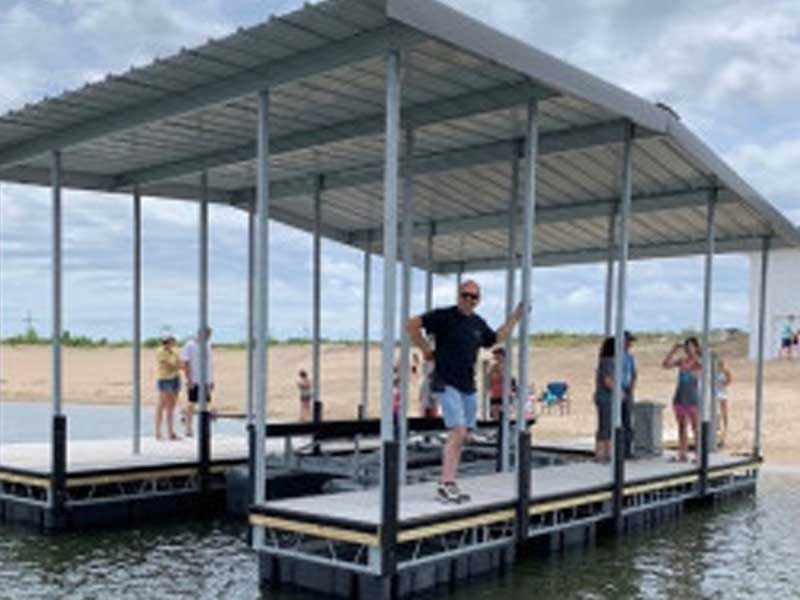The Ultimate Overview to Selecting the most effective Floating Docks
Picking the perfect floating dock needs a detailed understanding of various aspects that influence both performance and long life. Variables such as dock kinds, materials, and essential attributes substantially impact your decision-making process. Furthermore, considerations around installment and budget can better make complex the choice. By taking a look at these aspects methodically, one can make certain an investment that not just fulfills instant needs but likewise enhances general residential or commercial property worth. As we discover these important elements, it becomes clear that the right options can cause a lasting and practical remedy tailored to your certain demands.
Understanding Floating Dock Kind
When selecting a floating dock, it is necessary to recognize the numerous kinds offered, as each offers unique functions and applications. Floating docks mainly fall under three classifications: modular, stationary, and pontoon docks.
Modular docks are composed of private areas that can be easily put together or reconfigured, making them optimal for transforming water levels and varied usages, such as recreational activities or business operations. Their flexibility enables customization based upon details demands.

Pontoon docks are defined by their buoyant structure, typically composed of multiple pontoons that provide security and support. They are specifically well-suited for larger vessels and are frequently used in marinas or for beachfront properties. Understanding these types aids in selecting the most suitable floating dock to meet certain requirements, making certain optimum functionality and safety and security.
Secret Materials for Durability
Choosing the ideal products for floating docks substantially influences their resilience and long life. The most usual products include timber, plastic, metal, and composite products, each offering distinctive benefits and limitations.
Timber, frequently preferred for its aesthetic allure, calls for routine upkeep to stand up to wetness and degeneration. Pressure-treated lumber can improve resistance to rot, however it may still be susceptible to insects and weathering.

Plastic docks, constructed from high-density polyethylene (HDPE), are resistant to deterioration, UV radiation, and effect, making them a popular selection for seaside settings. Their light-weight nature also promotes easy installation and relocation.
Metal docks, commonly constructed from light weight aluminum or galvanized steel, give exceptional strength and resilience. They are resistant to rust, specifically when dealt with, but may call for extra insulation to stop warm build-up in warm climates.
Composite products, incorporating wood fibers and plastics, supply the advantages of both timber and plastic, withstanding wetness and fading while calling for very little maintenance. - floating dock builder
Ultimately, the choice of materials must straighten with ecological problems, intended usage, and maintenance preferences to ensure the floating dock continues to be functional and visually pleasing in time.
Vital Features to Think About
While the choice of products is essential, considering important functions for floating docks is just as essential to guarantee optimum efficiency and individual contentment. One essential function to analyze is the dock's buoyancy capability, which determines exactly how much weight it can support without immersing. floating dock services. This is vital for fitting boats, personal watercraft, and even recreational activities
Additionally, portability is a considerable factor to consider. Depending on your demands, you might want a dock that is simple to deliver and disassemble, specifically if you plan to transfer it seasonally. Security is another crucial attribute; a well-designed floating dock ought to lessen activity brought on by wind and water currents, giving a secure platform for individuals.
Safety attributes, such as non-slip surface areas and rounded edges, are likewise crucial to avoid mishaps, particularly in damp problems. Take into consideration the availability of devices, such as ladders, bumpers, and cleats, which can improve the capability of your dock.
Installment and Maintenance Tips
Establishing and keeping a drifting dock needs careful planning and interest to detail to ensure its long life and ideal efficiency. Begin by picking a proper location that minimizes exposure to strong currents and waves, which can trigger wear and tear. Ensure that the water deepness suffices for the published here dock's height which it is anchored firmly to avoid movement.
During installation, follow the producer's guidelines closely, as improper assembly can compromise security. Use high-quality products resistant to corrosion, such as aluminum or treated timber, to enhance toughness. Frequently inspect all parts, consisting of drifts, adapters, and anchoring systems, for indications of damages or wear.
Upkeep is critical for prolonging the life of your dock. Clean the surface areas regularly to stop algae buildup and look for any loose fittings that may call for firm. If your dock uses flotation protection devices, guarantee they stay undamaged and cost-free from punctures. In addition, think about applying protective finishings to wooden elements to decrease weathering impacts. By sticking to these installation and maintenance ideas, you can enjoy a reliable and his response practical floating dock for years to come.
Budgeting for Your Dock
Budgeting for your dock is a vital step that can dramatically affect your overall satisfaction and financial investment in a waterside property. Developing a clear budget plan assists you navigate the different alternatives readily available and guarantees you make notified decisions that straighten with your economic capacities.
Begin by determining the size and design of the dock you call for, as these factors will considerably influence the expense. Floating docks can vary considerably in price, depending upon materials, buoyancy, and features like devices and ramps. Research different suppliers and providers to compare rates and recognize the marketplace value.
In addition to initial prices, consider continuous expenditures such as maintenance, insurance, and possible repairs. Allot funds for these repeating costs to prevent shocks down the line. It's likewise sensible to budget plan for any type of needed licenses or inspections, which might be needed by neighborhood laws.
Last but not least, remember the possible roi. A well-planned dock can boost your home's worth and charm, offering a positive monetary effect in the lengthy term. By budgeting effectively, you can make sure that your dock fulfills your requirements without compromising your economic security.
Conclusion
Finally, selecting the ideal floating dock demands a detailed examination of different elements, consisting of dock kinds, materials, necessary features, and installation processes. Prioritizing toughness and conformity with local policies ultimately enhances capability and residential or commercial property value. Cautious consideration of monetary constraints will even more ensure a sound financial investment. By adhering to these guidelines, individuals can make enlightened choices that promote long-lasting complete satisfaction and usability in marine environments.

While the choice of materials is critical, considering crucial features for floating docks is equally vital to ensure ideal efficiency and user complete satisfaction.Establishing up and maintaining a drifting dock calls for careful preparation and interest to information to guarantee its longevity and optimum performance. Floating docks can vary significantly in price, depending on products, buoyancy, and attributes like devices and ramps.In conclusion, selecting the ideal floating dock demands a detailed examination of numerous variables, including dock kinds, products, crucial features, and installation processes.